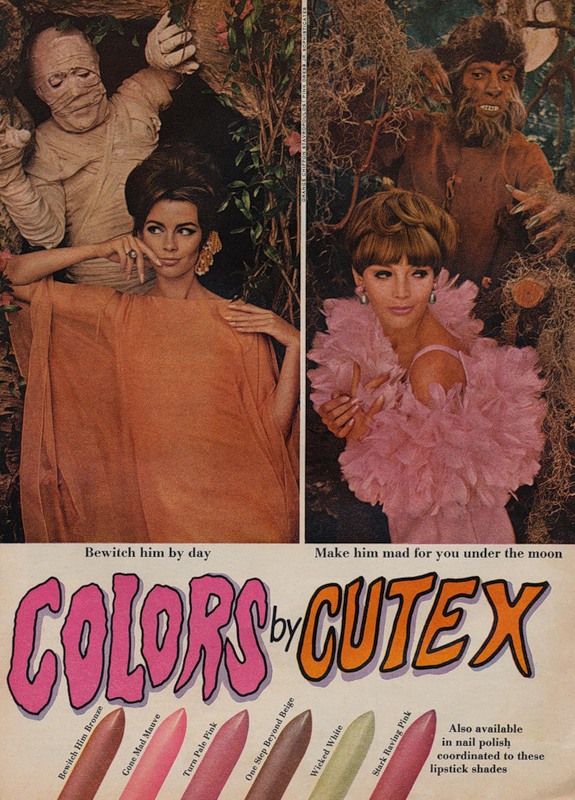NEWS:
This month our post on historical changes in soda portions was featured on Boing Boing.
Also, this is your monthly reminder that we’re on Twitter and Facebook (where we link to our posts everyday).
NEWS:
This month our post on historical changes in soda portions was featured on Boing Boing.
Also, this is your monthly reminder that we’re on Twitter and Facebook (where we link to our posts everyday).

Cross-posted at Ms.
Happy A. sent in an article at comment dit-on about a new anti-domestic violence ad in Chile that tells men not to hit women by using openly homophobic language — specifically saying that a man who hits a woman is a “maricón,” the equivalent of “faggot”:
Translation of the main text: “A faggot is one who hurts a woman.”
It’s a blatant example of the way leftist groups often undermine each other, fighting one form of inequality or discrimination by reinforcing another (see: everything PETA ever did). The group that put out the PSA added that a man who hits a woman is “poco hombre,” or barely a man, reinforcing the idea that gay men are insufficiently masculine. As the comment dit-on post author says, “Clearly, a larger conversation needs to take place about what it means to be powerful and attitudes that marginalize the powerless.”
UPDATE: Reader chinamorena says, “adding an interesting layer is the fact that the second man who speaks in the ad is Jordi Castell, a publicly gay tv personality.”
J.S. sent along the following mind-benders.
Sexy Chuckie:
Sexy Nemo:
Sexy Brian (a talking male dog) from The Family Guy:
Sexy Crayon:
The sexy Nemo is my favorite.
Lisa Wade, PhD is an Associate Professor at Tulane University. She is the author of American Hookup, a book about college sexual culture; a textbook about gender; and a forthcoming introductory text: Terrible Magnificent Sociology. You can follow her on Twitter and Instagram.
In an era when Halloween has become rather pornified, I was intrigued by this vintage ad which, while certainly encouraging women to play to the male gaze, suggested bewitching men instead of exposing as much flesh as possible:

Found at Vintage Ads.
Lisa Wade, PhD is an Associate Professor at Tulane University. She is the author of American Hookup, a book about college sexual culture; a textbook about gender; and a forthcoming introductory text: Terrible Magnificent Sociology. You can follow her on Twitter and Instagram.
Zoë sent us this video in which Erin Gibson satirizes the “sexy ____” costume trend for women so common this time of year:
JT sent along the following submission for grossest Halloween costume: the Jane Doe DOA. That’s Jane Doe Dead on Arrival to you. And isn’t she hot in her custom-made body bag and “choker”?
The description:
Although she doesn’t have much of a personality, she is still drop dead gorgeous in this body bag dress, I’m sure you have the personality and in this you will be gorgeous. Stretch satin mini dress with hood and a two way zipper front which can zip all the way up the hood, this is sleeveless and has a vest style finish at the back. One breast has an outline of a body printed on to it an PROPERTY OF THE CORONER. Pack includes Coroners name tag fitted to a choker Jane Doe and matching fingerless gloves. (3 piece set). Fabrics are listed as 95% polyester and 5% spandex. and other accessories are available separately.
Lisa Wade, PhD is an Associate Professor at Tulane University. She is the author of American Hookup, a book about college sexual culture; a textbook about gender; and a forthcoming introductory text: Terrible Magnificent Sociology. You can follow her on Twitter and Instagram.
Angela Zhang sent in a Heineken commercial that helpfully illustrates the common depiction of sex and dating as a game or hunt, and alcohol as a tool in that hunt. In the commercial, men are predators in a sexual “jungle,” and attractive women are their “prey.” The true champion in this hunt will not just manage to get his prey — he’ll get her to “surrender” to him voluntarily:
It’s not the first time Heineken has presented itself as a useful tool for your dating life. Also check out this video on women in beer ads. Of course, other times beer ads conflate women’s bodies with beer itself. Or liquor as the response to the loss of patriarchal power. And hey, guys, if you fail in your hunt, don’t worry — it turns out alcohol is better than relationships with women anyway!
Sent in by Peter via Ms. blog.
Lisa Wade, PhD is an Associate Professor at Tulane University. She is the author of American Hookup, a book about college sexual culture; a textbook about gender; and a forthcoming introductory text: Terrible Magnificent Sociology. You can follow her on Twitter and Instagram.